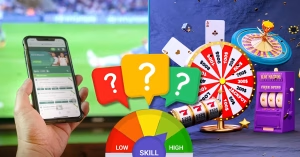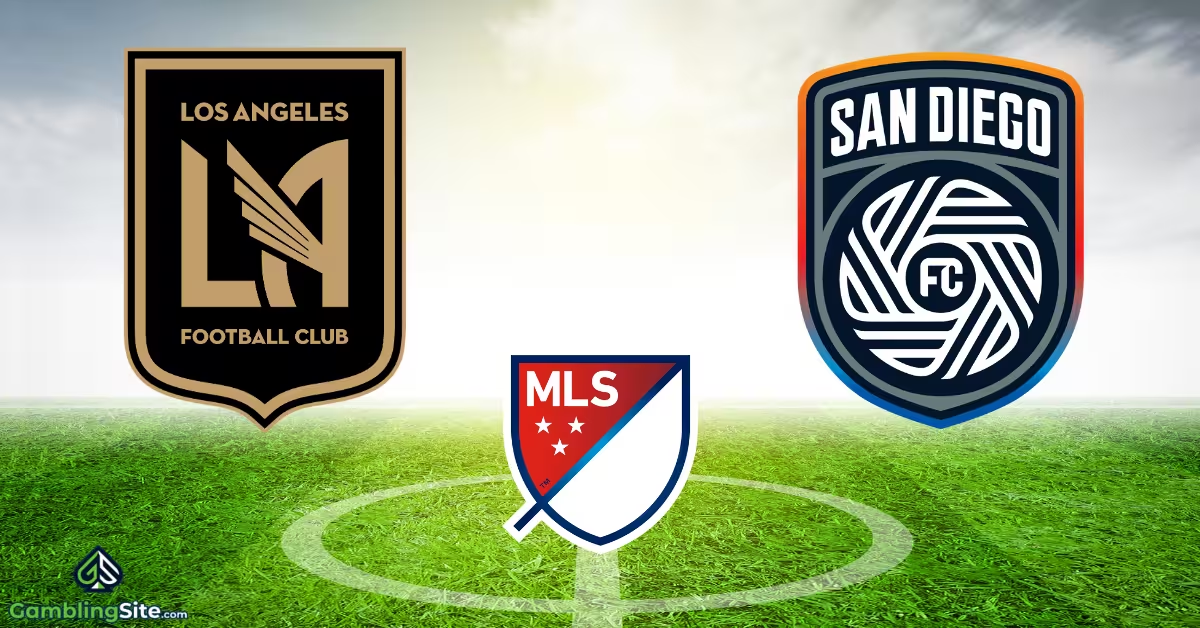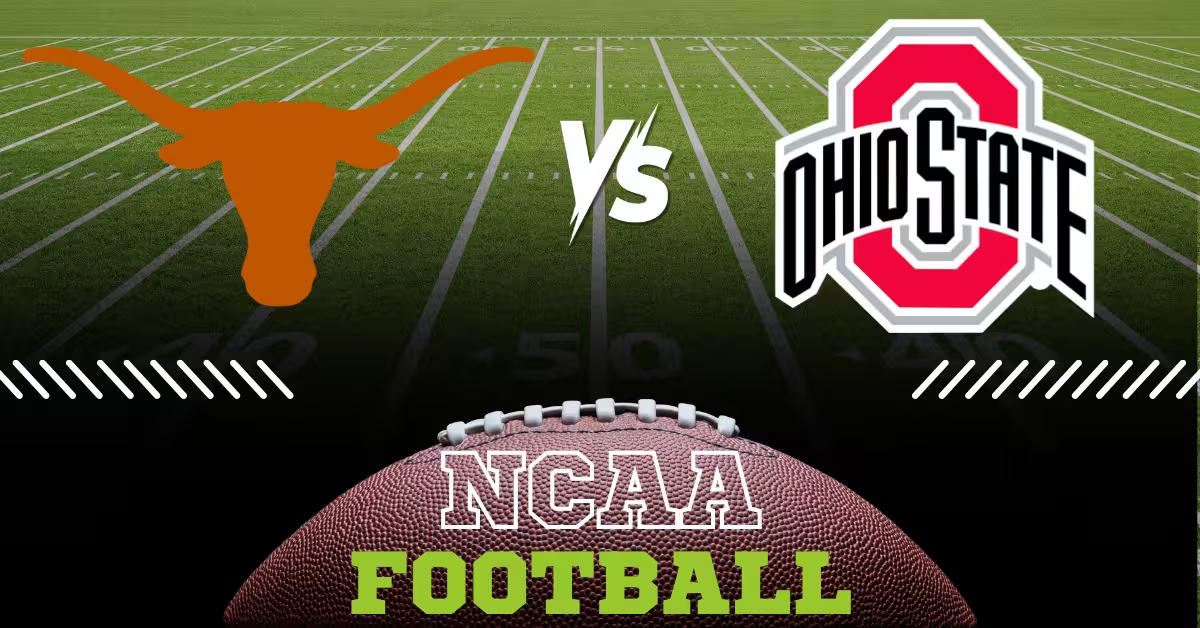Sleep & Betting Performance: The Science behind Rested vs. Tired Decision-Making
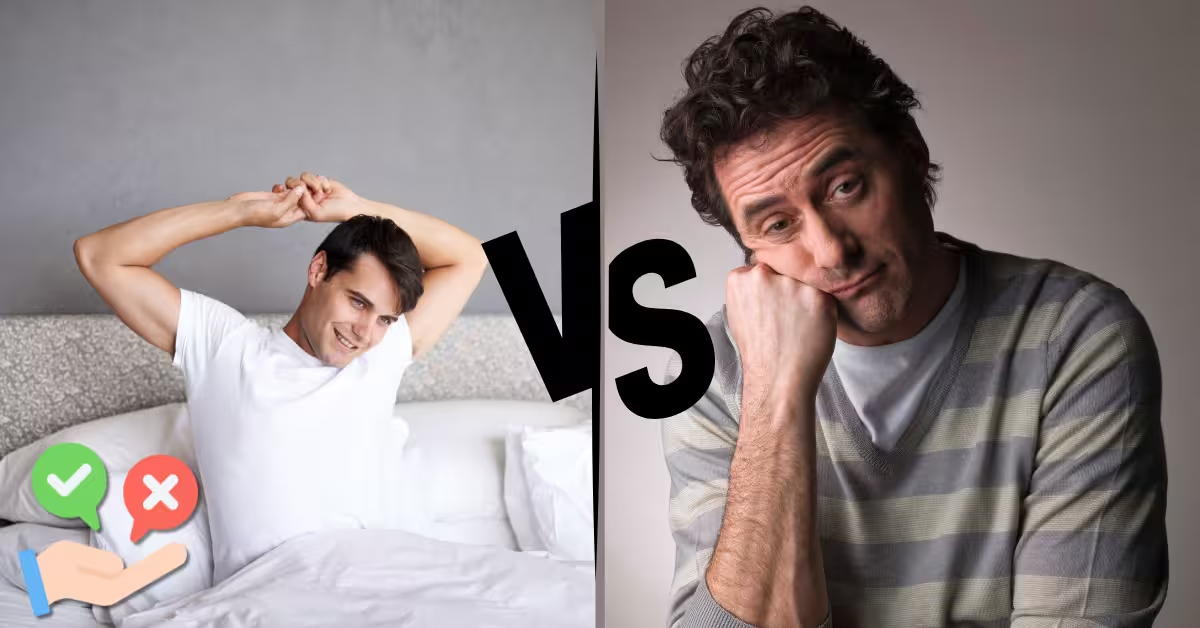
There’s a saying that “Nothing good happens after 12 am,” and for the most part, it’s held up.
We don’t necessarily make the best decisions when the clock strikes midnight. That encompasses online shopping, club hopping, and betting.
If you’ve ever made impulsive or riskier bets when it’s late at night? It’s not all your fault! Some of it is your tired brain. It’s science! A sleep-deprived brain is wired to make worse decisions.
Lack of sleep can sabotage your judgment, weaken your impulse control, and make losses feel like they’re not as big of a deal. And in high-stakes betting, where every decision counts? Being at your well-rested best is almost as important as a solid strategy.
That’s why we are going to look at why good sleep is a bonus for bettors! How does snoozing (or the lack of it) alter your cognitive function? What does the research on rested vs. tired gambling performance say? And how can you harness those zzz’s to your advantage? Let’s find out why your best bet might be getting a good night’s sleep!
The Science of Sleep & Cognitive Performance
Sleep isn’t solely “down time.” Nope! It’s for active brain maintenance that keeps our decision-making up and running.
During quality sleep, the brain consolidates memories and fine-tunes emotions, and then it “resets” for the next day. Sleep deprivation throws this system totally off balance. The prefrontal cortex, aka our brain’s decision-making center, takes the brunt of the lack of sleep.
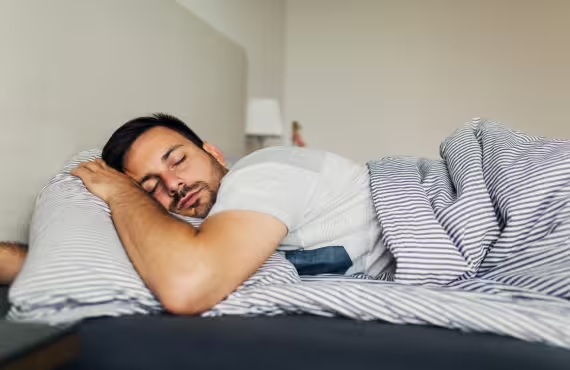
The region is responsible for governing logical reasoning, self-control, and risk assessment, and it’s super sensitive to sleep loss l. When you’re short on sleep, the prefrontal cortex has a harder time reining in impulsive urges from deeper brain areas (like the amygdala, which processes fear and reward). And that means slower reaction times, impaired focus, and a skewed sense of judgment.
What are the main brain functions impacted by poor sleep? These suckers:
- Reduced working memory: Sleep-deprived individuals can’t hold and process information as efficiently. This makes it harder to track bets or recall odds, as the “mental scratchpad” is not at its best.
- Impaired logical reasoning: Complex decision-making and executive functions falter without sleep. You’re more prone to flawed logic or overlooking important facts when evaluating a wager.
- Increased impulsivity: Lack of sleep lowers inhibitions and ramps up impulsive behavior. A tired bettor might fire off hasty bets (that they’d avoid when they’re well-rested) just because the brain’s brakes aren’t at full capacity.
- Lower emotional control: Fatigue amplifies mood swings and stress reactions. This means you have less patience and are more prone to emotional decision-making, and that’s a dangerous combo at the betting table or if you’re gambling online.
Not worried it’ll affect you? You should be! Staying awake for 17–18 hours straight impairs your cognitive performance as much as having a blood alcohol level of 0.05%. Push past 20–21 hours? And you’re at the equivalent of legal intoxication in some places. An all-night gambler is basically betting with a buzzed brain.
No serious bettor would do shots while making picks, but a lack of sleep has a similar effect on decision-making reflexes and judgment. Sleep researcher Dr. William Killgore put it like this: “Sleep loss impairs the same frontal brain networks that are crucial for complex decision-making,” meaning your brain’s CEO goes off-duty when you’re tired.
How Sleep Affects the Brain’s Decision-Making Center
Neuroscientists have pinpointed exactly how being tired alters the brain’s decision circuitry. During healthy sleep, the medial prefrontal cortex (mPFC), which is, for all intents and purposes, the rational control center, is strongly connected to the amygdala, and that generates emotional responses.
This connection helps you weigh risks and keep your emotions in check. When you haven’t slept, that MPFC–amygdala link weakens dramatically. Studies using fMRI found that sleep-deprived people had hyperactive amygdalas (signaling intense emotional reactions) with reduced input from the logical mPFC. This means that a tired brain is more “all gas, no brakes,” quick to react and slow to rationalize.
Another effect is on the insula, a region that helps evaluate negative outcomes (like losses). Research by Vinod Venkatraman and colleagues showed that after sleep deprivation, the brain’s response to losses in the insula was blunted. This suggests that when we’re exhausted, losses don’t register as harshly, and that could potentially cause a bettor to keep chasing bets because the pain of losing just isn’t sinking in.
At the same time, the brain’s reward anticipation center (the nucleus accumbens) becomes more active for high-risk, high-reward choices under sleep loss. The science says a sleep-deprived brain overestimates potential rewards and undervalues potential losses, and that’s a neurological nightmare for risky betting!
Rested vs. Tired Bettors: What Research Shows
How do these brain changes play out in real betting behavior? Studies consistently link a lack of sleep to riskier gambles and poorer outcomes.
An experiment had people perform a gambling task (the Iowa Gambling Task1) when they were well-rested and again after being sleep deprived. The rested participants learned to avoid the “bad” high-risk choices, maximizing their winnings. The sleep-deprived participants did the opposite; they kept gravitating to risky options and failed to learn from their losses. Their expectation of reward from risky bets was unrealistically high, while their concern for losses was abnormally low. Being tired tricked them into thinking “this long shot will pay off,” even though the odds were slim.
Real-world gambling studies echo the above findings. In a 28-day study of online poker players, sessions where players were sleep-deprived saw worse financial results and more reckless play compared to sessions when those same players were well-rested.
The tired players played a lot more hands (often a sign of loosened discipline) and experienced more “tilt,” which is the term for emotional, irrational play after setbacks. Emotional and behavioral tilt was much higher when players were sleep-deprived, causing them to make aggressive moves and chase losses far more than they would normally. The data suggests this scenario is way more likely when a person is running on fumes.
And outside of labs, experienced gamblers have observed the same pattern. Michael W. L. Chee, a cognitive neuroscientist who studied sleep and risky decision-making, noted that “Most of us know people who have stayed up all night at a gambling table, taking crazy risks that didn’t make sense and who lost more than they had because they did not walk out when it was sensible to.”
Tired gamblers don’t quit when they should; they get overconfident in long-shot bets and are less responsive to the mounting losses. And “tilt” is supercharged by fatigue. What starts as a calculated game plan can devolve into a blur of impulsive bets when you’re sleep-starved and frustrated.
Higher Risk-Taking & Overconfidence
Researchers have quantified the spike in risk-taking under sleep deprivation. In the study we cited earlier, after only one night of no sleep, participants didn’t necessarily make more bets, but they valued the high-risk bets much more, as evidenced by greater reward-center activation. They were overconfident in low-probability bets, convinced they’d hit the jackpot despite the odds.
Other studies found that even partial sleep restriction (getting, say, 4–5 hours instead of 8) can increase risk propensity. Five nights of partial sleep deprivation led people to gather less information before making a decision and to take riskier options on a betting task. The cumulative effect of getting too little sleep each night can seep into your betting habits, nudging you toward riskier gambles without you fully realizing it’s happening.
Tracking Wins and Losses (or Not)
A telltale sign of a good bettor is the careful tracking of wins, losses, and bankroll, and sleep loss undermines this discipline. Because memory and attention suffer when you’re tired, a sleep-deprived bettor can literally lose track of how much they’ve lost in a session.
Even more insidious is that the brain’s dulled response to losses means you emotionally underestimate your losses. You could blow through your stop-loss limit or break your betting plan because the usual mental red flags (“you’ve lost enough for today”) aren’t firing. In the online poker study, players running on little sleep were less responsible with their bankroll management; they kept buying in or increasing stakes in an attempt to recover, whereas rested players had the presence of mind to quit or stick to their limits.
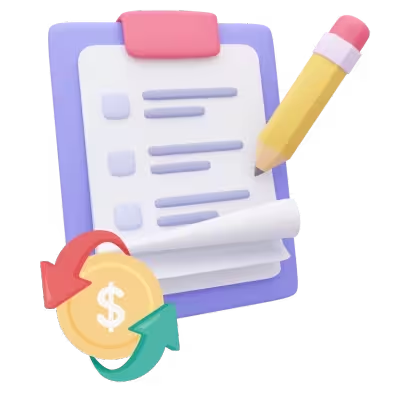
‘Tilt’ Amplified by Fatigue
Tilt is every bettor’s enemy, and a lack of sleep primes you for it in two ways: it lowers emotional control and increases stress. A fatigued brain has a lower threshold for emotional activation, meaning the slightest setback can set off a big emotional reaction. Fatigue also increases cortisol (the stress hormone) and makes it harder to regulate feelings.
When you’re exhausted, you’re a powder keg at the betting table. A bad beat or an unlucky loss while in this state can trigger an irrational flurry of bets as you try to win it back, and that usually causes even bigger losses.
Peak Betting Performance: Why Sleep Gives You the Edge
If fatigue is a bettor’s kryptonite, then quality sleep is a superpower. How does being well-rested give players a competitive advantage? By doing the following:
Mental Clarity and Focus
A fresh, rested mind processes info quickly and accurately. This means that you’re better at spotting value bets, which are those subtle opportunities that an unfocused bettor might miss.
A sports bettor who got a good night’s sleep is more likely to notice a small but important detail (like a star player’s minor injury or a weather change) and react accordingly. But a groggy bettor? They could overlook that info or react too slowly. There’s a lot of truth to the adage “sleep on it” for big decisions: one study found that participants who slept between sessions of a complex gambling task improved significantly more than those who stayed awake.
The sleepers were better at adjusting strategy and avoiding bad bets, and it’s due to overnight memory consolidation. In real betting, this translates to learning from mistakes and keeping a clear head, and that’s something only a well-rested brain can reliably do.
Patience and Discipline
Fatigue comes with irritability and impatience, whereas proper rest restores willpower. A rested bettor is far more likely to stick to their plan and not to chase losses on a whim. A disciplined approach where you don’t succumb to the emotional urge to “win it back now” is the difference between a small loss and a catastrophic one.
The research shows that sleep-deprived people have a harder time delaying gratification and often seek quick rewards. In betting terms, that means jumping on a risky parlay or doubling your bet size out of frustration. With sufficient sleep, your brain’s self-control circuitry is in tip-top shape, making it easier to say, “Nope, I’ll pass on that bad bet,” or to call it a night when you’re off your game. Expert gamblers stress this; six-time WSOP champion Daniel Negreanu ranks sleep above diet and exercise during the grueling multi-day poker series. He knows that without adequate rest? Keeping his cool and patience through 12-hour tournament days would be impossible.
Better Risk Assessment
Sleep literally helps you evaluate probabilities more rationally. When you are well-rested, you engage the prefrontal cortex fully, which means you analyze odds and outcomes with a calm head. You’re less likely to overestimate a long shot or underestimate a favorite.
Your working memory and concentration are at their peak, so you can do quick mental math or recall important stats under pressure. For sports bettors who are doing live in-game wagering, this clarity is a must; you only have seconds to decide on a line. A rested mind can quickly crunch the situation, like how an injury or a momentum shift affects win probability, and a tired mind might freeze or misjudge the scenario.
Phil Galfond, a high-stakes poker pro, says “Better sleep was correlated to more focus, more discipline, less sloppiness” in his performance, and it proved as impactful to his win rate as any amount of strategy study. Sleep fortified his ability to assess and respond optimally in tough spots.
Emotional Stability
The name of the game in gambling is highs and lows. There could be big wins and bad beats, and controlling your emotions is the key to long-term success.
Sleep is a foundational mood regulator. With enough rest, you’re less prone to anxiety and anger, and your brain’s reward systems stay in balance. This means that you can celebrate a win or shake off a loss without veering off your game plan. A tired bettor could be euphoric on a win and start betting reckless amounts, or get enraged by a loss and go on tilt.
Most professional poker players intentionally get 7–8 hours of sleep during tournaments to keep an even keel; they know one emotional outburst can cost them the championship. Emotional control fueled by sleep helps you make rational decisions (“I’ll stick to my strategy despite this setback”) rather than emotional ones (“I’m mad, so I’m shoving all-in out of spite”).
Better Bankroll Management
Ultimately, successful betting is as much about avoiding mistakes as it is about making great picks. Being rested gives you the willpower to adhere to bankroll management rules: setting limits, sizing up bets wisely, and not throwing good money after bad.
Fatigued gamblers are known to become way less responsible with their bankrolls, usually because their impulsivity spikes and planning falters. But a bettor who is alert and rested can more easily stick to, say, betting only 2% of their bankroll per play, or walking away after losing a set amount. They treat all decisions with the care they deserve.
An article on problem gambling said that “Impaired sleep…makes it more challenging for individuals to resist the urge to gamble in search of emotional highs”, feeding into reckless spending. When you prioritize sleep, you guard against those urges and preserve your bankroll for when the odds are really in your favor.
How Sleep Deprivation Sabotages Your Betting
Okay, we’ve gone over the advantages of being rested, so now we need to get into all of the ways that insufficient sleep can wreck your betting decisions!
Impaired Probability Judgment
When you’re running on empty, your brain’s ability to calculate odds and evaluate outcomes takes a hit. You start misjudging probabilities, and it’s usually in favor of unlikely outcomes. This is partly due to the skewed reward/loss processing we discussed.
A sleep-deprived sports bettor could convince themselves that a heavy underdog has a way better shot than it objectively does, or that buying a long-shot parlay ticket is “worth it” despite the poor odds. It’s as if fatigue adds a few points to every unlikely bet in your mind.
The aforementioned study found that tired individuals showed probability distortion, acting as though low chances were higher than they really were. This can cause them to make ill-advised bets on extreme upsets or lottery-type wagers that a clear-headed person would never make. You turn into the optimist of the betting world at the wrong time, as you see silver linings where there’s only risk.
Emotional Betting and Martingale Mindset
Lack of sleep not only clouds your logic; it also heightens emotions and stress, and that’s a bad combo! You could start betting to soothe your feelings instead of using a strategy.
A tired mind is more anxious and more prone to seek out comfort or excitement. Some gamblers report placing bets late at night out of boredom or to lift their mood, and that’s a behavior that can veer into problem gambling territory. And the “I’ll win it back” impulse, which is sometimes called the Martingale mindset, is amplified with fatigue. Because your impulse control is lower, you’re more likely to throw good sense out the window and double your next bet after a loss, hoping for emotional relief if you win. This rarely, if ever, ends well.
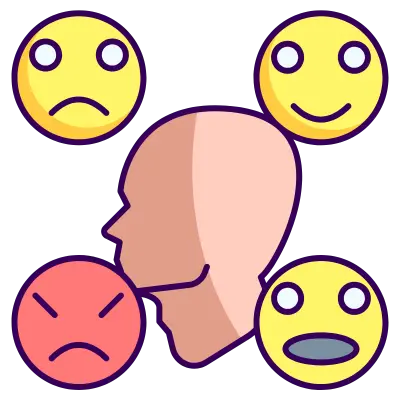
Research on gambling addiction has noted that sleep loss and insomnia can fuel a vicious cycle: stress and losses lead to poor sleep, which leads to worse decisions, which lead to more losses and stress. Breaking this cycle by stopping and sleeping is the smartest move, but a sleep-deprived gambler finds it hard to make that correlation.
Microsleeps and Missed Opportunities
Anyone who has pulled an all-nighter probably knows the feeling of “nodding off” for a split second. These are called microsleeps, and they are brief lapses where the brain falls asleep for a moment or two.
They are especially dangerous in monotonous tasks (like driving on a straight road)… and guess what, they can strike during long betting sessions too. If you’re trying to live-bet a game at 4:00 am or grinding through hands of online poker while bleary-eyed, you risk these lapses in attention.
A microsleep at the wrong time, like the 10 seconds when a live betting line shifts into value territory? You’ve missed your chance to pounce. Or worse, you mistakenly click the wrong button or bet the wrong amount because you’re not fully conscious for a moment. You could see a great betting opportunity, but react a few seconds too late to get the good odds. And in fast-moving markets, being slow is as bad as being wrong.
Case Example: Rested vs. Exhausted in Live Play
It’s the final table of a poker tournament at 3:30 am. Two players are left, and one got a solid 8 hours of sleep the night before, and the other has been up for 24 hours straight (after playing multiple events back-to-back).
A big hand comes up. The well-rested player sees a subtle tell in his opponent’s behavior and remembers a similar situation from earlier in the night, guiding him to fold a marginal hand. The sleep-deprived player is running on adrenaline. His mind is foggy on the previous patterns of play, and his emotions are running high after a bad beat. He overestimates the strength of his cards and pushes all-in, a blunder that a clear mind would likely have avoided.
The outcome? The exhausted player loses on that rash move, and the rested player wins. This exact scenario echoes countless real stories from pros. Poker veteran Lee Jones described how he loved playing in the early morning to “prey” on overnight players who were too tired to make good decisions. According to Jones, “Nobody is playing their best when they’ve been playing all night,” and you can practically see the point where a fatigued opponent “just doesn’t care any more.” If you’re the tired one at the table (or at the sportsbook), you become the prey. Your decision quality drops to a level that even less skilled but rested opponents can use against you.
Sleep Timing & Betting Schedules
It’s not just how much you sleep, but when you sleep (and bet) that can influence your success. A lot of bettors fall into the trap of late-night betting sessions, but the timing of your wagers relative to your body’s natural clock, aka the circadian rhythm, makes a difference in your decision-making quality.
By the time midnight or 1 am rolls around, most people’s brains have been active for a long stretch and are winding down. Mental fatigue accumulates from the day’s work, stress, and decision-making (known as decision fatigue).
As cognitive exhaustion sets in, we become prone to snap judgments and reduced self-control. If you find yourself betting late at night, you’re probably not at your mental peak. And late-night gambling usually coincides with other risk factors, like alcohol or recreational substances; maybe you had drinks while watching the game. A tired brain plus a buzz can lead to reckless bets. Even caffeine, which some use to stay awake, has diminishing returns; by late night, you might be on your third Monster energy drink, feeling jittery but not focused.
Studies on gambling behavior found that a large portion of online betting happens late in the evening or after midnight, and that’s precisely when fatigue is high and inhibition is low. This isn’t an accident; online platforms capitalize on the “always open” aspect. But being aware of this can help you make a smarter choice: maybe skip that 2 am impulse bet.
In a French survey of online poker players, 72.5% reported playing late at night, and almost half admitted these sessions interfered with their sleep. Those who regularly gamble into the wee hours usually report more losses and more negative experiences, which aligns with the science that your decision-making prowess at 2 am is a shadow of what it is at 2 pm.
The circadian rhythm is your internal body clock that dictates when you feel alert versus drowsy over a 24-hour period. For most adults, there’s a natural dip in alertness in the mid-afternoon (the post-lunch slump) and a big drop late at night, while mornings (after fully waking) and early evenings tend to be when the brain is at its sharpest.
Research has found that, in general, decision-making is most accurate earlier in the day (roughly between 8 am and 1 pm) and becomes faster but error-prone later in the day. Of course, individual chronotypes matter; if you’re a night owl, your “morning” might be closer to noon. You have to identify when your peak mental alertness occurs and, if possible, align important betting decisions with those times.
For most players, late morning or early evening (after work but before the fatigue) is a sweet spot: you’re awake, fed, and not mentally drained. But making bets at 4:30 am when you’d normally be asleep is just asking for trouble unless you’ve shifted your sleep schedule. If you’re placing wagers on overseas sports events or markets that run on a different time zone, plan ahead!
If a European soccer match is on at 5 am your time, instead of staying up all night for it, think about waking up fresh for it (meaning get to bed early the night before). Or if a West Coast NBA game ends at 1 am Eastern, decide your betting strategy before that fatigue sets in instead of chasing a live bet after midnight.
In our global betting world, fans follow leagues that are happening at odd local hours. If you’re regularly betting on events that are outside your time zone, it really pays to adjust your routine!
Here are a few solid strategies:
- Shift your Sleep Schedule on Big Event Days: Treat it like you’re adjusting to jet lag. If the World Cup final is at 3 am your time, try gradually moving your bedtime later in the days prior, or take an evening nap, so that you’re not stone-tired at kickoff.
- Leverage Technology: Most sportsbooks allow pre-set bets or use features like “stop-loss” and “stop-win” limits in betting exchanges. If you know you’ll be too tired (or asleep) to make a thoughtful decision, you can place conditional bets ahead of time.
- Don’t Make Emotional Live Bets: If you insist on live-betting a game that runs in the middle of your night, plan your stakes before it starts. Decide, when you’re clear-headed, the maximum you’ll risk and what scenarios might prompt you to bet or cash out. Write it down. That way, you have a reference if and when your willpower is low.
- Use Alarms and Breaks: If you’re watching games late, set alarms to keep you alert. Also, schedule short breaks; even 5 minutes of going outside or doing jumping jacks can ward off the fog. Continuous hours staring at a screen overnight only exacerbate cognitive fatigue.
- Recognize the Role of Lifestyle on Timing: If you work a 9-to-5 job, your evenings will be the only free time to bet, but that also means you’re potentially mentally tired from the workday. In such cases, be super vigilant and limit complex bets to weekends when you’re fresher, or keep weeknight bets smaller and simpler. If you’re a professional bettor or have a flexible schedule, you have the luxury to tailor your betting to when you function the best. A lot of serious bettors treat their routine like that of a pro athlete: they won’t stay up partying before a big day of betting, they make sure that they’re rested and alert during market opens or game times, and they take strategic rest days (or off-seasons) to avoid burnout.
- Listen to Your Body Clock: Ultimately, the goal is to bet when your mind is at its clearest. If you catch yourself rubbing your eyes, rereading the same stats because they’re not sinking in, or feeling like you need a triple espresso to continue, those are signs that it is not l the optimal time to be making important betting decisions. You will be better off sleeping and coming back refreshed, even if that means missing a late-night wager. There will always be more games, but you only have one brain! Don’t force it into bad bets when it’s begging you for some zzz’s.
Practical Sleep Strategies for Bettors
Knowing the importance of sleep is one thing; improving your sleep habits is another can of worms. Fortunately, there are some concrete steps you can take to boost your sleep quality, and that will support better betting performance. Below are some actionable strategies to use:
Keep a Consistent Sleep Schedule
Try to go to bed and wake up at the same time every day (yes, even on weekends if you can). A regular schedule strengthens your circadian rhythm, making it easier to fall asleep and wake up with a clear head. Irregular sleep (late nights followed by catch-up sleep) can make you jet-lagged in your own time zone. By sticking to a routine, you guarantee that your brain is reliably recharged when you need it.
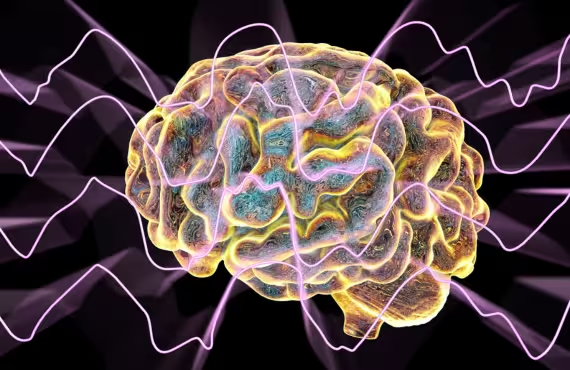
Create a Wind-Down Routine (Ditch the Screens)
In the 30–60 minutes before bed, do calming activities and avoid intense mental stimulation. This means turning off betting apps, shutting down the computer or TV, and definitely not making last-minute, stressful bankroll calculations.
Bright screens emit blue light that tricks your brain into thinking it’s daytime, suppressing melatonin (the sleep hormone). If you have to use devices, switch on night mode or use blue-light filtering glasses. Better yet, replace that screen time with something relaxing: read a light book, do some stretches, practice deep breathing, or mindfulness. This tells your brain to shift into sleep mode.
Bettors say that if they scroll odds or sports news right up until bed, their mind races with thoughts (and regrets or second-guessing bets). A wind-down routine helps prevent that by giving your mind permission to disconnect.
Optimize Your Sleep Environment
Small changes to your bedroom can pay off dividends in sleep quality! Keep the room dark, cool, and quiet. Blackout curtains or an eye mask can help if early light or streetlights are an issue. Earplugs, white noise, or a fan can buffer noise (super useful if you live in a noisy area or have roommates who stay up late). Make sure your mattress and pillow are comfortable; you want your bedroom to be a sleep sanctuary, free of work or betting-related stress. Experts say to keep the bed reserved for sleep (and other things), not to scroll through sports scores or analyze lines.
Limit Caffeine (and Alcohol) After Mid-Afternoon
Caffeine has a half-life of about 5 hours, meaning that afternoon coffee at 4 pm can still leave a quarter of its potency in your system by 9 pm or later. It can disrupt not only falling asleep but also the depth of sleep. Try to cut off caffeine by early afternoon (or at least 6–8 hours before bedtime).
If you need an energy boost later, opt for a power nap or a short walk instead. Alcohol is a little trickier; it might make you drowsy initially, but it fragments your sleep and reduces the restorative REM stages. Booze and quality sleep don’t mix well; having a drink during the game is fine for most, but know your limits and try not to use alcohol as a sleep aid; the sleep you get after heavy drinking won’t refresh your brain.

Exercise Regularly (But Not Right before Bed)
Physical activity during the day, like a 20-minute walk or some quick cardio, can help you fall asleep faster and deepen your sleep cycles. Exercise relieves stress and balances hormones that affect sleep. Just try not to do any vigorous exercise in the late evening, as it can raise your heart rate and body temperature when you should be cooling down. A workout in the morning or afternoon is ideal, and regular exercise can improve mood and reduce anxiety, which indirectly helps you avoid insomnia that’s fueled by betting stress.
Use the Tech
There are a ton of sleep tracking tools and apps that can help you understand and improve your sleep. Fitness wearables like the Oura Ring, the WHOOP band, or an Apple Watch can monitor your sleep duration and stages. They give a “readiness score” or sleep quality metric each morning. While they’re not 100% precise, they can highlight trends, like if you consistently sleep poorly on nights after big betting days, or how a late caffeine or screen session affected you. Some apps (SleepCycle, Rise, etc.) analyze your patterns and will suggest “sleep hygiene” improvements.
Address Sleep Disorders if Needed
If you suspect you have a specific sleep problem (like insomnia, sleep apnea, or restless legs syndrome), consider getting professional advice.
Chronic snoring and daytime fatigue could indicate sleep apnea, which not only hurts your betting focus but is a health risk. Insomnia (trouble falling or staying asleep) can sometimes be mitigated by cognitive behavioral therapy for insomnia (CBT-I), which retrains your sleep habits. Better sleep is strongly linked to improved cognitive function, memory, and mood, which are all factors that contribute to making smart, disciplined bets. If something is consistently disrupting your sleep despite good habits, consult a doctor or sleep specialist.
Your Best Bets? They All Begin with Rest
If you don’t snooze, you might lose! Sleep impacts betting performance as much as any skill, strategy, or analysis. You can study all of the statistics in the world, hone your game theory, and listen to every betting podcast out there, but if you neglect your sleep? You’re throwing a part of that edge away.
A well-rested brain is the command center of disciplined, good betting. It’s not a coincidence that some of the best bettors and poker players stress how important good sleep is: they know it’s the best way to maintain focus, patience, and emotional balance over the long run.

Alyssa contributes sportsbook/online casino reviews, but she also stays on top of any industry news, precisely that of the sports betting market. She’s been an avid sports bettor for many years and has experienced success in growing her bankroll by striking when the iron was hot. In particular, she loves betting on football and basketball at the professional and college levels.



